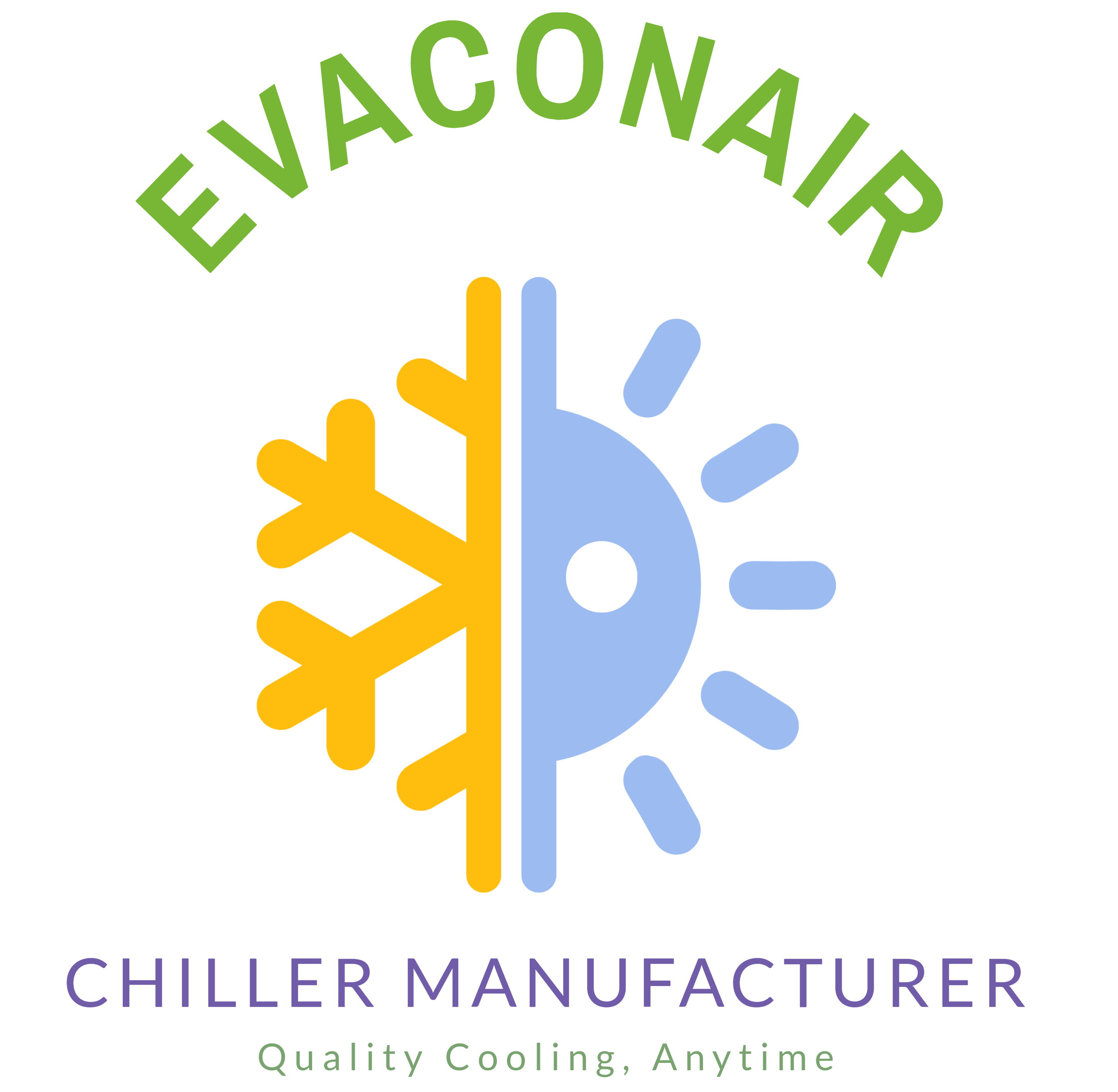Blog
Which is better centrifugal or screw compressor chiller?
Choosing between a centrifugal compressor chiller and a screw compressor chiller depends on the specific application, cooling capacity needs, and operational requirements. Both types of chillers have unique benefits, and understanding their differences can help in selecting the right chiller system for your facility.
Centrifugal Compressor Chiller
A centrifugal chiller uses a rotating impeller to compress the refrigerant by converting kinetic energy into pressure. These chillers are best suited for high-capacity cooling applications and are often used in large commercial and industrial environments.
Advantages of Centrifugal Chillers
- High Efficiency at Large Loads
- Centrifugal chillers are extremely efficient when operating at high capacities, typically over 500 tons. They are the preferred choice for large-scale applications like factories, office complexes, and commercial buildings.
- Low Maintenance
- With fewer moving parts compared to other types of compressors, centrifugal chillers require less maintenance, which can lead to lower operational costs.
- Quieter Operation
- Centrifugal chillers tend to operate quietly, which is beneficial in environments where noise levels must be minimized, such as in office buildings and hospitals.
Disadvantages of Centrifugal Chillers
- High Initial Cost: Centrifugal chillers generally have higher upfront costs and are not as efficient at lower loads.
- Low Efficiency at Partial Loads: Centrifugal chillers are most efficient at full load. Their efficiency decreases significantly at partial load conditions, making them less suitable for applications with fluctuating cooling demands.
Screw Compressor Chiller
A screw chiller uses two interlocking helical rotors to compress refrigerant. It is well-suited for applications requiring medium to large cooling capacities, but screw chillers are more flexible when dealing with variable loads.
Advantages of Screw Chillers
- Flexibility in Load Handling
- Screw chillers can efficiently handle variable loads, making them ideal for applications with fluctuating cooling requirements. This makes them highly suitable for industries such as pharmaceuticals, manufacturing, and HVAC systems for large commercial buildings. Systems like the Air-Cooled Screw Chiller in Ahmedabad and Water Cooled Screw Chiller in Ahmedabad excel in handling medium to large cooling needs.
- Energy Efficiency at Partial Loads
- Screw chillers are more efficient than centrifugal chillers at partial loads, offering better performance in applications where the cooling load is not consistent.
- Durability and Low Maintenance
- With fewer moving parts compared to reciprocating compressors, screw compressors are durable and require less frequent maintenance, reducing long-term operational costs. They are often used by Chiller Manufacturers in Ahmedabad for industries looking for reliability and efficiency.
Disadvantages of Screw Chillers
- Lower Efficiency at High Loads: While screw chillers are highly efficient at variable loads, they are not as efficient as centrifugal chillers when operating at maximum capacity.
- Noisier at High Loads: Screw chillers can be noisier than centrifugal chillers when operating at high capacity.
Centrifugal vs. Screw Chiller: Which is Better?
1. Efficiency at Full Load vs. Partial Load
- Centrifugal Chillers: Best for high-capacity applications where the chiller operates at full load most of the time. These systems are highly efficient when cooling demand is constant, such as in large industrial facilities.
- Screw Chillers: Ideal for applications that experience fluctuating cooling demands. Screw chillers, like the Water Cooled Screw Chiller in Ahmedabad, are more efficient at partial loads, making them versatile and cost-effective for dynamic environments.
2. Maintenance and Longevity
- Both centrifugal and screw chillers are relatively low-maintenance compared to reciprocating chillers. However, centrifugal chillers may require more attention to prevent efficiency drops at partial loads, while screw chillers are generally durable and easier to maintain.
3. Capacity Needs
- Centrifugal Chillers: Typically used for very large-scale cooling capacities, often starting from 500 tons and going much higher. They are common in big commercial or industrial buildings that have a consistent, high cooling demand.
- Screw Chillers: Suitable for medium to large cooling loads, typically ranging from 100 to 500 tons. Screw chillers are highly versatile and are used in applications like Air-Cooled Water Chillers and Water Cooled Water Chillers for both industrial and commercial purposes.
Conclusion
Both centrifugal and screw chillers have their advantages, but the best option depends on the specific cooling requirements of your facility. For high-capacity, consistent cooling demands, centrifugal chillers may be the better choice due to their high efficiency at full load. However, for applications with variable cooling needs, screw chillers offer greater flexibility and efficiency at partial loads. Whether you’re looking for a Chiller Manufacturer in Ahmedabad or Chiller Dealers in Ahmedabad, understanding these differences will help you select the right system. For more information, explore our products page.
